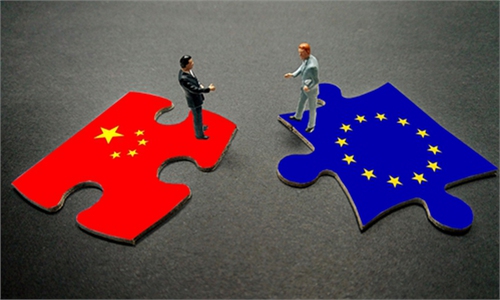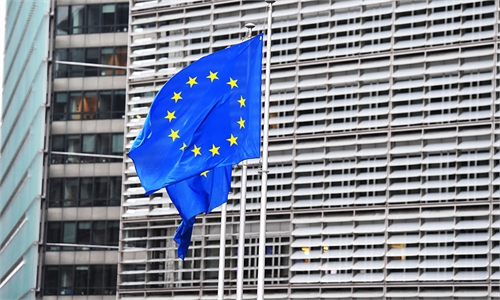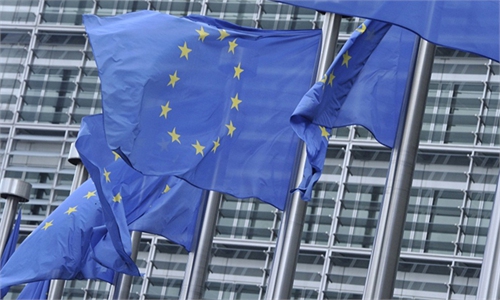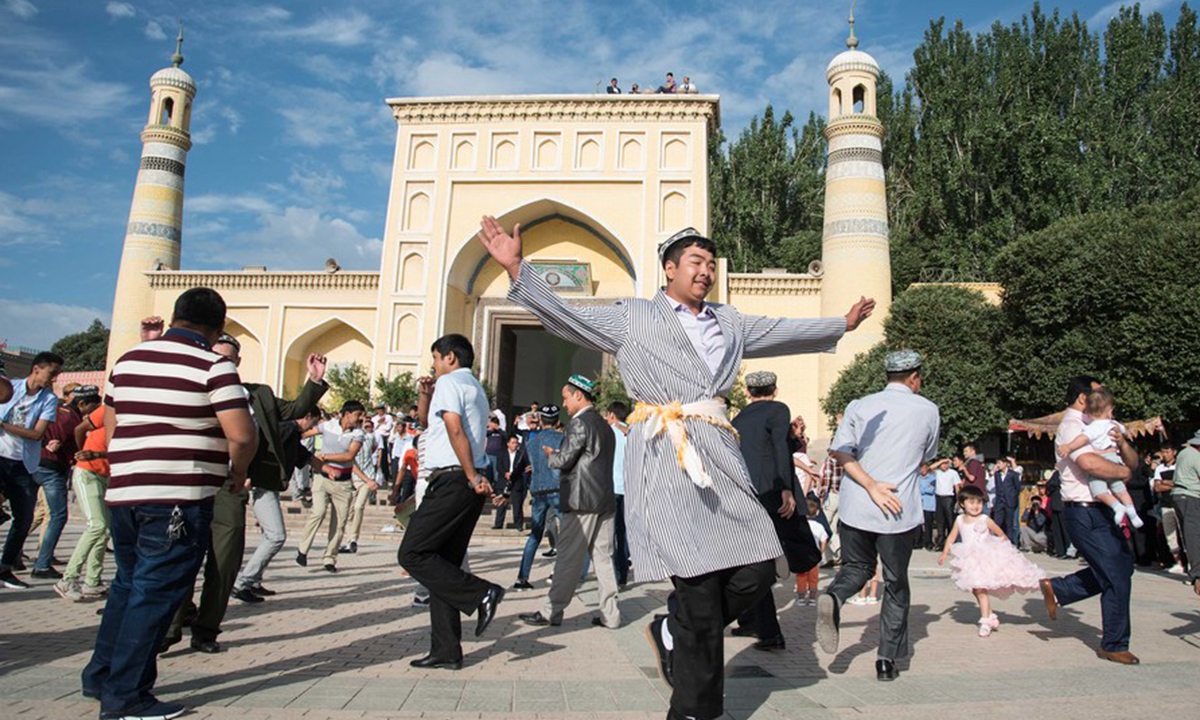
Muslims dance in front of the Id Kah Mosque in Kashgar, northwest China's Xinjiang Uygur Autonomous Region, July 6, 2016. Photo: Xinhua
A few Western countries are engaging in a public opinion and political war against China. They intend to further smear China in opinion sphere and politically marginalize China. Their bluff will turn out to be counterproductive. As a matter of fact, these countries are not wise at all. They hope to expose China's so-called human rights issues. Instead, it will promulgate China's achievements in governance more quickly to the rest of the world.
The US, EU UK and Canada on Monday announced sanctions on Chinese officials over alleged human rights issue in Xinjiang. Australia and New Zealand, another two members of the Five Eyes alliance, have welcomed the sanctions, although they have not announced any such measures of their own, The Guardian newspaper reported on Tuesday.
This has been the first coordinated move by a group of Western countries against China since Joe Biden took office in January,
Western countries are trying to create a narrative that everything about China should be opposed. They groundlessly portray China as an anti-human rights and anti-humanity country. This is done so they can obtain more support from the international community in their anti-China crusade. In fact, these anti-China countries and politicians who have ganged up together are in fact anti-human rights, anti-humanitarian, and anti-humanity.
Biden has stressed that his administration will bring together US allies to form a grand alliance to counter China. The human rights agenda can easily win resonance in Western society. That's why the US and its Five Eyes allies and some European countries can keep up their fabrication of Xinjiang affairs. These countries really do not care about the "human rights" of the Uygur people. They only want to smear and impair China.
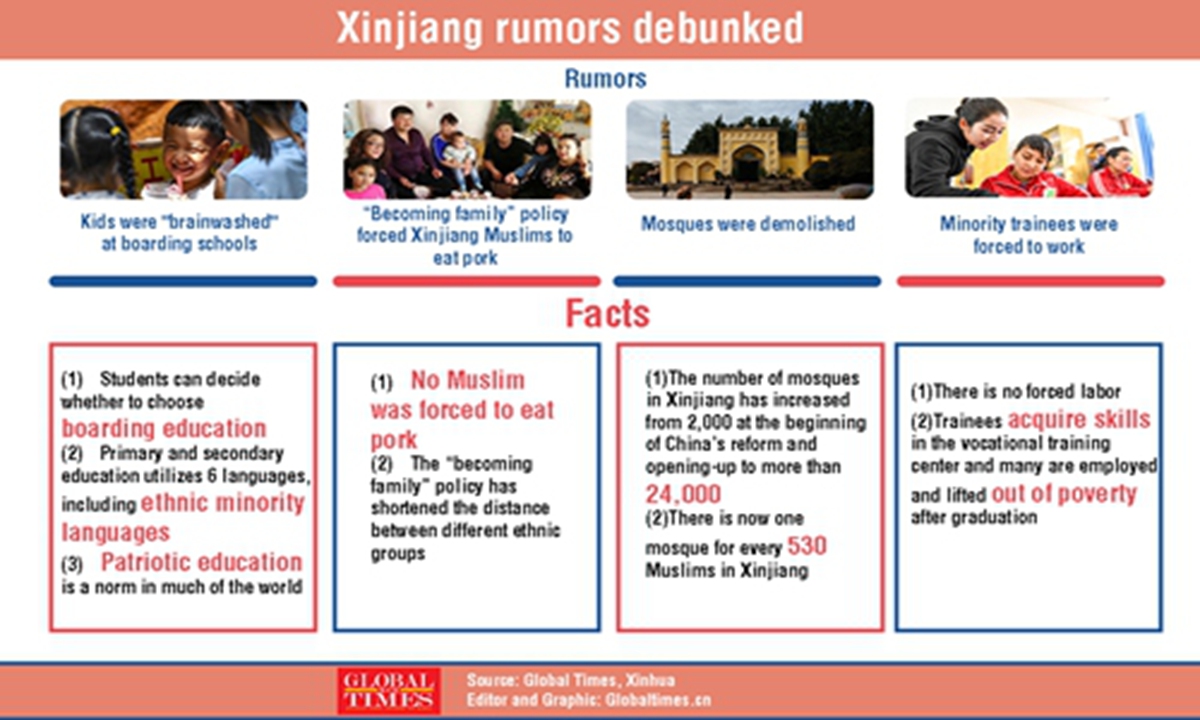
Photo: GT
It seems they are attempting to create a sense of "Western" solidarity. Some countries in the West are following US' lead, but not all of them. The West seems to be united over a few issues concerning human rights. But they have wide differences in the field of economics and trade.European countries have different national interests. Even members of the Five Eyes alliance find it difficult to agree with each other on every issue. In general, the West is deeply divided, especially over their China policies. The US has been trying to form a unified strategic competition against China among Western countries. But this is all in vain. Yet the US is unlikely to halt its attempts.
China is already the largest trading partner of the European Union, Australia and New Zealand. China also has close trade relations with the UK and Canada. On the one hand, they follow the US to attack China without any bottom line. On the other hand, they want to seek economic benefits from China. It's hard to maintain such an unfair scenario in the long run. The Western mindsets are confusing when it comes to China. On China-related issues, especially in terms of Xinjiang's governance, the West has attempted to place itself on the moral high ground to condemn China. As a matter of fact, the past colonial history of the US and European countries is full of atrocities.
They are not qualified to point fingers at other countries, including China. Their inglorious acts have brought about varying degrees of harm to the colonized countries and peoples. Their accusations against China over Xinjiang are merely groundless lies.
Western countries should decide their China policies according to their own national interests. They should not blindly follow Washington. These countries cannot regard the interests of the US as the sole criteria to take measures against China. In that scenario, they will neither reap benefits nor improve their reputation.
The author is professor at the Institute of International Relations of the China Foreign Affairs University. opinion@globaltimes.com.cn
